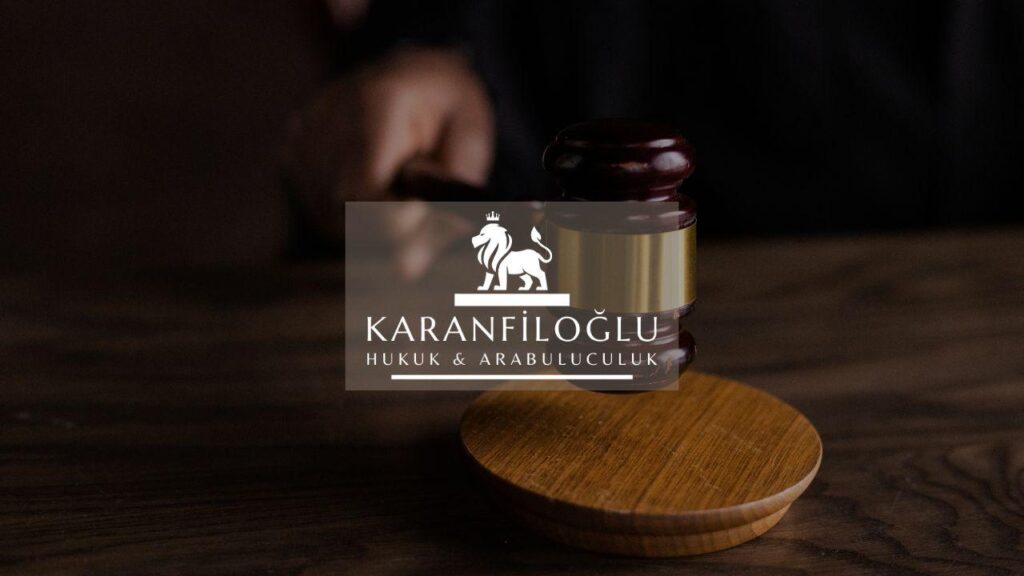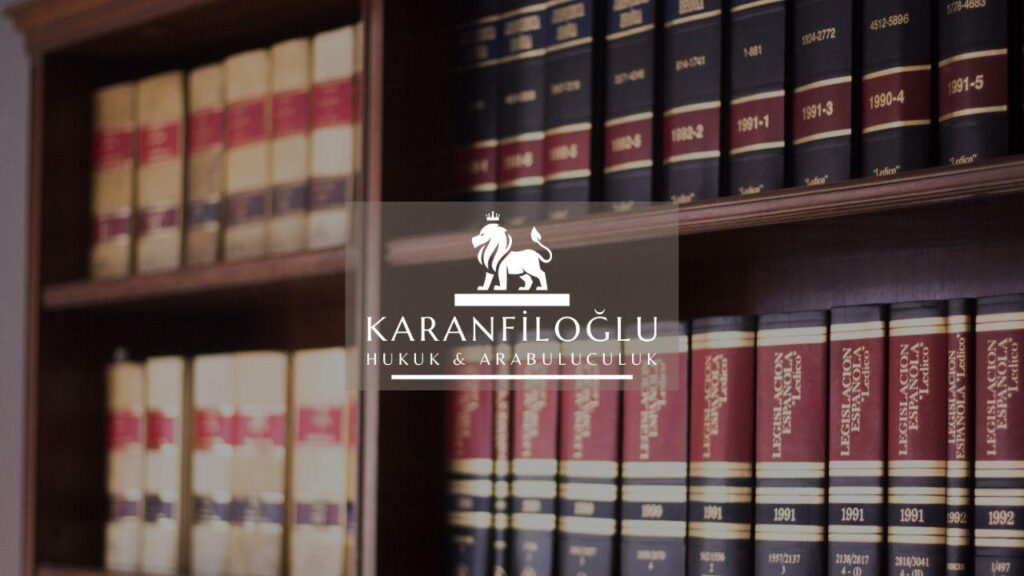Land disputes in Turkey can be complex and multifaceted, often requiring a thorough understanding of various laws and regulations. At Karanfiloglu Law Office, we specialize in navigating these intricate legal landscapes to provide our clients with comprehensive solutions. The primary legal framework governing land disputes in Turkey includes the Turkish Civil Code (Law No. 4721) and the Title Deed Law (Law No. 2644). These laws cover essential aspects such as property ownership, land registration, and dispute resolution mechanisms. Additionally, Article 12 of the Title Deed Law stipulates the procedures for registering and contesting land ownership, while Article 719 of the Turkish Civil Code elaborates on the rights and obligations related to immovable properties. Whether you’re facing issues related to boundary disputes, inheritance claims, or illegal encroachments, our experienced attorneys are well-equipped to handle every aspect of your case, ensuring your rights and interests are meticulously defended.
Understanding the Legal Framework of Land Disputes in Turkey
Understanding the legal framework governing land disputes in Turkey is crucial for effectively navigating these complex issues. At the forefront of this framework is the Turkish Civil Code (Law No. 4721), which provides comprehensive regulations on property ownership and rights. Articles such as Article 683 of the Turkish Civil Code detail the possession and protection of immovable property, outlining the legal steps required to assert ownership claims. Complementing this, the Title Deed Law (Law No. 2644) addresses the formalities of land registration and the legal procedures to challenge or verify land ownership, as specified in Article 12. These laws work in tandem to create a structured approach to resolving land disputes, offering clear guidelines on legal recourse available to affected parties.
In addition to the Turkish Civil Code and the Title Deed Law, other legislative instruments also play a crucial role in managing land disputes. For instance, the Zoning Law (Law No. 3194) provides regulations on land use and urban planning, which can significantly impact property rights and disputes. Article 18 of the Zoning Law, for example, concerns land readjustment and can affect property boundaries and ownership statuses. Moreover, the Code of Civil Procedure (Law No. 6100) outlines the legal proceedings for civil disputes, including those concerning immovable properties, ensuring that due process is followed in litigation. Articles 178 to 183 of the Code of Civil Procedure specifically address the procedures for filing and handling lawsuits related to land disputes, from the initial complaint to the final resolution. These laws collectively ensure that land disputes are addressed through a structured and lawful process, providing a clear legal pathway for resolution while safeguarding the rights of all parties involved.
Beyond the legislative framework, understanding the practical application of these laws in real-world scenarios is essential for effectively handling land disputes. At Karanfiloglu Law Office, our attorneys not only possess a deep knowledge of the relevant statutes but also have extensive experience in courtroom litigation and alternative dispute resolution methods. Mediation and arbitration, as encouraged by the Mediation Law (Law No. 6325), often provide more expedited and less adversarial avenues for dispute resolution. Article 3 of the Mediation Law specifically promotes the use of mediation in civil disputes, including property and land issues. By leveraging these alternative methods, our legal team can often achieve favorable outcomes without the prolonged timeline and expense of traditional court proceedings. Whether through negotiation, mediation, or litigation, we are committed to protecting our clients’ rights and delivering effective solutions tailored to the specific circumstances of each case.
Essential Steps for Resolving Land Disputes: A Step-by-Step Guide
The initial step in resolving a land dispute in Turkey is to thoroughly investigate and compile all relevant documentation related to the property in question. This includes obtaining copies of the title deed, cadastral records, and any previous court decisions or legal documents that pertain to the property. Ensuring these documents are accurate and up-to-date is crucial, as discrepancies may affect the legitimacy of your claim. Under Article 997 of the Turkish Civil Code, it is imperative that property rights are clearly delineated and supported by official records. If any inconsistencies are found, they should be promptly addressed through the appropriate legal channels, such as rectifying errors in the land registry under Article 11 of the Title Deed Law. Moreover, engaging a qualified surveyor to conduct an on-site inspection can provide valuable insights into the physical and legal status of the property, thereby establishing a strong foundation for your case.
Once the necessary documentation and inspections are completed, the next critical step is to pursue mediation and negotiation to resolve the dispute amicably, as outlined in the Turkish Mediation Law (Law No. 6325). Mediation is highly encouraged in Turkey and serves as a cost-effective and expedient method to settle disagreements without resorting to lengthy litigation. During the mediation process, both parties can present their case, discuss their concerns, and work towards a mutually acceptable solution under the guidance of a neutral mediator. According to Article 18 of the Mediation Law, agreements reached through mediation are binding and enforceable by law, provided they are documented and signed by both parties. Utilizing mediation not only fosters a collaborative environment but also helps preserve relationships between disputing parties, making it a preferable first step before initiating formal legal proceedings.
If mediation fails to resolve the land dispute, the final recourse is to initiate formal legal proceedings. Filing a lawsuit in the relevant Turkish court, typically the Civil Court of First Instance, becomes necessary to adjudicate the matter. Under Article 1007 of the Turkish Civil Code, plaintiffs are required to submit a legal petition outlining their claims, supported by the previously gathered documentation and any expert reports. It is essential to have experienced legal representation throughout this process to ensure procedural compliance and to advocate effectively for your interests. The court will examine the evidence, hear testimonies, and may appoint its own experts to conduct further investigations if deemed necessary. A comprehensive understanding of procedural laws and the ability to present a well-constructed case are crucial to a favorable outcome. At Karanfiloglu Law Office, our seasoned litigators are dedicated to offering robust legal strategies, guiding you through each step of the litigation process, and striving for a resolution that upholds your property rights.
How Expert Legal Counsel Can Affect Your Land Dispute Outcome
Engaging expert legal counsel from Karanfiloglu Law Office can significantly impact the outcome of your land dispute by providing you with comprehensive legal strategies tailored to your specific situation. Our team of seasoned attorneys specializes in dissecting the intricate details of Turkish land law, including the nuances of the Turkish Civil Code (Law No. 4721) and the Title Deed Law (Law No. 2644). Understanding key articles like Article 12, which outlines the procedures for registering and contesting land ownership, and Article 719, detailing the rights and obligations concerning immovable properties, allows us to construct robust case strategies. With our deep legal expertise and methodical approach, we meticulously prepare each case to maximize your chances of a favorable verdict, ensuring that all procedural requirements are met and that your legal rights are steadfastly defended.
Beyond crafting legal strategies, our attorneys at Karanfiloglu Law Office also excel in effective negotiation and mediation, crucial components for resolving land disputes amicably and expeditiously. Leveraging our deep understanding of the Turkish Mediation Law (Law No. 6325), we strive to reach settlements that save you time and reduce litigation costs. We engage all parties involved to explore mutually beneficial solutions while ensuring compliance with legal standards and protecting your interests. In cases where mediation fails or is not feasible, we provide vigorous representation in court, utilizing our comprehensive knowledge of relevant laws and articles, such as Article 124 of the Turkish Civil Code, which addresses the procedures for initiating legal actions related to immovable property. Our goal is to secure a resolution that aligns with your best interests, either through peaceful negotiation or decisive litigation.
At Karanfiloglu Law Office, we understand that each land dispute is unique, requiring a customized approach to achieve the best possible outcome. Our commitment to providing expert legal counsel extends beyond the courtroom as we offer continuous support and guidance throughout the entire legal process. We keep our clients informed at every stage, ensuring they understand their rights under relevant statutes, including Article 706 of the Turkish Civil Code concerning the transfer of ownership of immovable properties, and Article 1010 of the same code, which deals with the registration of servitudes. Our proactive stance, combined with our in-depth knowledge and experience, enables us to anticipate potential legal challenges and address them effectively. Whether you are dealing with complex property inheritance issues, illegal occupancy, or boundary disputes, Karanfiloglu Law Office is dedicated to safeguarding your interests and achieving the desired resolution.
Disclaimer: This article is for general informational purposes only and you are strongly advised to consult a legal professional to evaluate your personal situation. No liability is accepted that may arise from the use of the information in this article.







